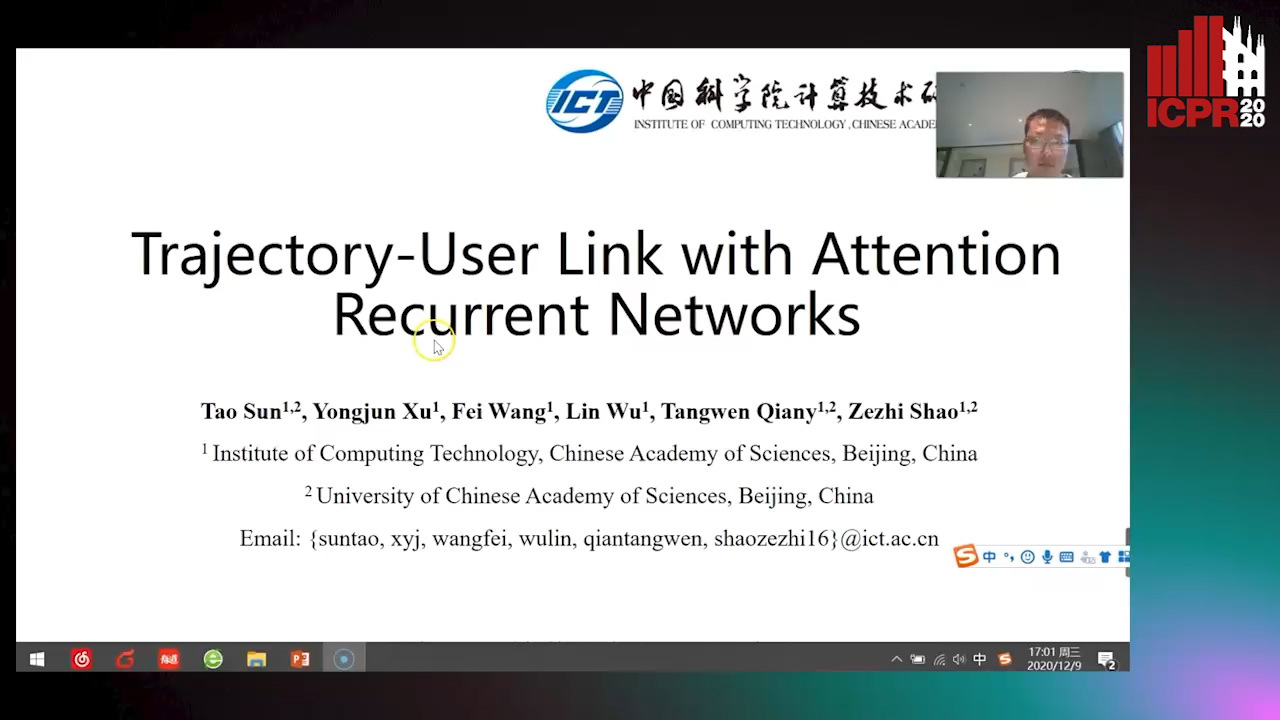Zezhi Shao
Paper download is intended for registered attendees only, and is
subjected to the IEEE Copyright Policy. Any other use is strongly forbidden.
Papers from this author
Trajectory-User Link with Attention Recurrent Networks
Tao Sun, Yongjun Xu, Fei Wang, Lin Wu, 塘文 钱, Zezhi Shao

Auto-TLDR; TULAR: Trajectory-User Link with Attention Recurrent Neural Networks
Abstract Slides Poster Similar
The prevalent adoptions of GPS-enabled devices have witnessed an explosion of various location-based services which produces a huge amount of trajectories monitoring the individuals' movements. In this paper, we tackle Trajectory-User Link (TUL) problem, which identifies humans' movement patterns and links trajectories to the users who generated them. Existing solutions on TUL problem employ recurrent neural networks and variational autoencoder methods, which face the bottlenecks in the case of excessively long trajectories and fragmentary users' movements. However, these are common characteristics of trajectory data in reality, leading to performance degradation of the existing models. In this paper, we propose an end-to-end attention recurrent neural learning framework, called TULAR (Trajectory-User Link with Attention Recurrent Networks), which focus on selected parts of the source trajectories when linking. TULAR introduce the Trajectory Semantic Vector (TSV) via unsupervised location representation learning and recurrent neural networks, by which to reckon the weight of parts of source trajectory. Further, we employ three attention scores for the weight measurements. Experiments are conducted on two real world datasets and compared with several existing methods, and the results show that TULAR yields a new state-of-the-art performance. Source code is public available at GitHub: https://github.com/taos123/TULAR.